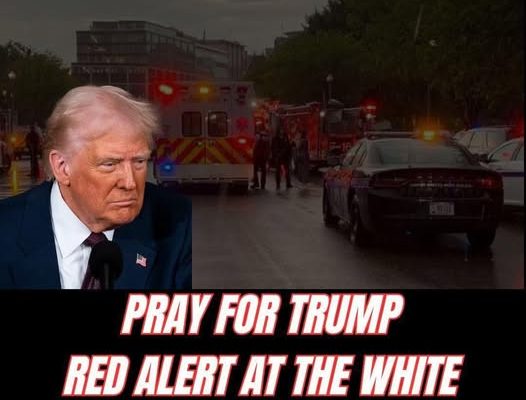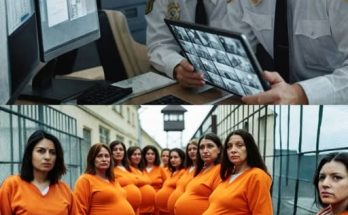A political and constitutional storm is brewing in Washington, D.C., as the Trump administration moves aggressively to reshape how crime is handled in the nation’s capital. What’s happening in the District is far more than a local experiment—it’s a high-stakes test case that could redefine the balance between federal authority and local governance, with ripple effects for cities across the United States.
A National Experiment in the Capital
President Trump has made clear that Washington will serve as the “laboratory” for a new era of crime policy. Instead of working through existing city structures, the administration has asserted direct federal authority over law enforcement in the District. Supporters hail the move as decisive leadership against rising urban crime. Critics argue it’s an alarming breach of constitutional boundaries and a dangerous precedent for federal overreach.
Washington, D.C., has always occupied a unique constitutional position. Unlike states, its local government exists under congressional authority, and that legal gray zone is now being tested in ways not seen before. The administration insists the district’s crime levels constitute an “emergency” requiring immediate federal intervention. Legal scholars, however, warn this justification may not withstand scrutiny under the Home Rule Act, which guarantees a measure of local autonomy.
Congress Draws Battle Lines
On Capitol Hill, lawmakers are preparing for a bruising fight. Republicans have rallied around the president, casting the initiative as proof that only their party has the political will to address crime in urban areas. Senator Lindsey Graham has stepped forward as one of Trump’s closest allies on the matter, coordinating with Attorney General Pam Bondi to draft support in both chambers of Congress.
Democrats, meanwhile, see the move as nothing less than a power grab. Senator Dick Durbin and others argue that the District is not facing a crisis severe enough to justify federal takeover, and they accuse Trump of using crime as a pretext to expand executive authority.
The White House has promised a sweeping crime bill in the coming months. Republicans see it as a political opportunity to brand themselves as the “law and order” party heading into election season. Democrats view it as a test case that could erode democratic governance in cities nationwide.
The Economics of Safety
Beyond the law enforcement piece, the administration is expected to include a large-scale economic component in its package. Trump has signaled a push for infrastructure funding in Washington—street repairs, beautification projects, and urban renewal. While he has downplayed the costs, insiders suggest the funding levels will be substantial.
This strategy is rooted in the “broken windows” theory, which argues that addressing visible signs of neglect can reduce crime by fostering community pride and order. Critics dismiss the theory as superficial, saying it fails to address deeper issues such as poverty, inequality, and systemic injustice. Still, Republicans are betting that the promise of safer, cleaner streets will resonate with voters.
Senator Katie Britt of Alabama, chair of the Homeland Security appropriations subcommittee, has been tasked with shepherding what’s being called the “D.C. Security Fund” through Congress. Her involvement signals that significant federal dollars are on the table, though final figures remain closely guarded.
Constitutional Challenges
The legal foundation of Trump’s approach is shaky. His temporary authority over the Metropolitan Police Department expires after 30 days unless Congress approves an extension. Democrats see this as their chance to block the plan, while Republicans have floated the idea of declaring a national emergency to bypass procedural hurdles.
Such a declaration would almost certainly face immediate lawsuits, likely escalating all the way to the Supreme Court. Legal scholars warn the precedent could radically expand executive power, giving future presidents broad justification to intervene directly in city governance whenever they see fit.
Local Communities Feel the Impact
The federal takeover has already reshaped daily life in D.C. Attorney General Bondi’s order eliminating sanctuary city protections has dramatically changed how local police interact with immigrant communities. Critics warn that fear of deportation will discourage residents from reporting crimes or cooperating with law enforcement, making neighborhoods less safe.
Adding to tensions, the administration appointed an “emergency police commissioner” to oversee the Metropolitan Police Department—replacing the locally appointed chief. D.C. officials say this undermines democratic governance, stripping residents of the limited self-determination they’ve fought to preserve.
Community groups are organizing protests, warning that the new policies will fracture trust between residents and police. Meanwhile, Republican leaders point to the measures as proof of federal commitment to restoring law and order.
National Stakes
The importance of this fight extends far beyond Washington. Trump has openly described the D.C. initiative as a template for other “blue cities” that, in his words, have failed to keep crime under control. If the experiment is deemed a success, similar federal interventions could be rolled out in cities from Chicago to San Francisco.
Such a shift would fundamentally alter American federalism, transforming law enforcement from a primarily local responsibility into one increasingly centralized in Washington. Whether the public sees this as a solution or an overreach could shape U.S. politics for decades.
Republican governors have already hinted they would welcome federal assistance in crime-ridden areas. Democratic mayors, on the other hand, are mobilizing to resist, warning that federal intrusion could make policing more militarized and less accountable to local communities.
What Comes Next
The coming months will be decisive. With Congress returning from recess, Republicans are expected to try attaching D.C. crime provisions to broader spending bills ahead of the September 30 government funding deadline. That maneuver could corner Democrats into choosing between opposing Trump’s initiative or risking a government shutdown.
Local D.C. officials are also escalating their response. Attorney General Brian Schwalb has filed lawsuits challenging the constitutionality of the takeover, marking the beginning of what could become a lengthy legal battle.
For now, Washington stands as both a testing ground and a flashpoint. The residents of the capital are experiencing firsthand the effects of an unprecedented federal intervention. Meanwhile, the rest of the nation watches closely to see whether this bold new model will bring safer streets—or serve as a cautionary tale about the dangers of centralized control.
What’s at stake isn’t just the security of one city, but the future of American democracy itself.



